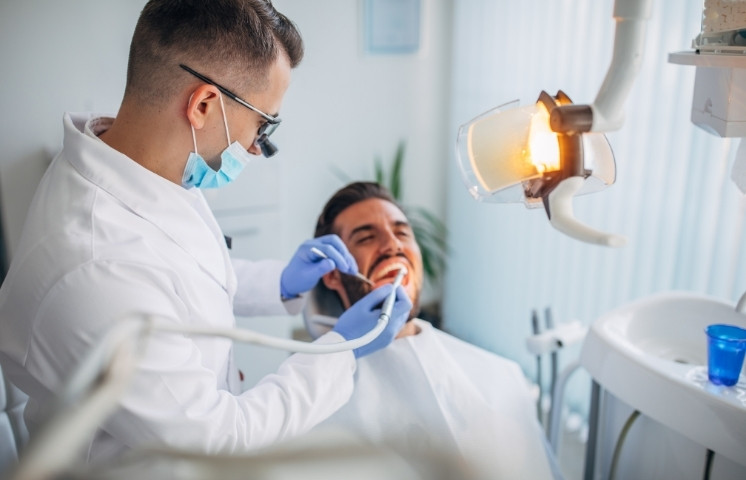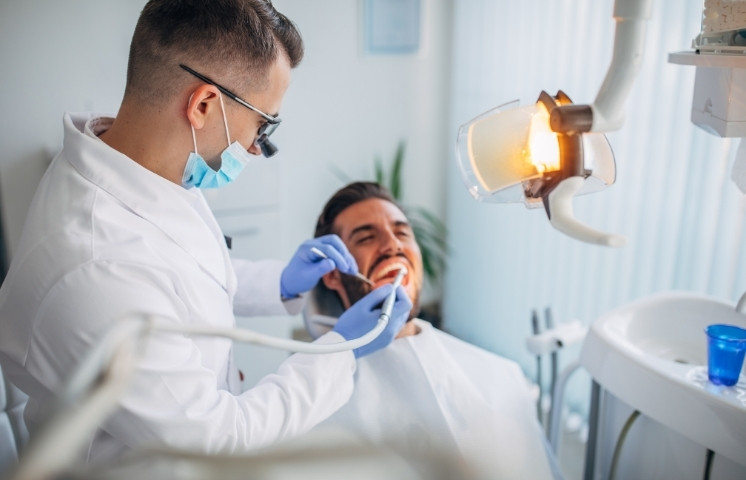
How to Recognize the Signs of a Dental Emergency
Dental emergencies can happen anytime. It can cause pain, discomfort, and potential long-term damage. You must recognize the early signs of a dental emergency that can ensure timely care and reduce serious health risks. If you ignore urgent dental issues, it can lead to severe infections, tooth loss, or costly treatments.
Knowing when to seek immediate help is crucial. This is because it can protect your oral health. Symptoms like severe pain, swelling, or knocked-out teeth demand quick action. Prompt treatment by an emergency dentist helps avoid complications and saves teeth.
If you avoid care, it can exacerbate the condition, which can result in irreversible damage. You should know common dental emergencies that can equip you to move swiftly in times of crisis. Periodic check-ups with the dentist can allow the detection of probable risks before they get worse.
You must keep your emergency dentist’s contact numbers handy. Rapid response in a dental emergency can make recovery a smoother process.
Common Indications of a Dental Emergency
1. Severe Tooth Pain
Severe, persistent, or throbbing tooth pain may indicate serious underlying problems. You should not ignore the pain that worsens with pressure, biting, or temperature changes. Remember, toothaches can be a sign of cavities, infections, or damaged nerves that require immediate attention. If you ignore severe pain, it can result in abscesses or loss of the tooth. An emergency dentist can diagnose and alleviate the cause of severe pain.
2. Bleeding Gums or Mouth
Uncontrolled bleeding following trauma or dental treatment indicates a dental emergency. Chronic bleeding gums may point out advanced periodontal disease. It requires immediate intervention. You must consider checkups from a professional if you experience prolonged bleeding following brushing or flossing. Prompt treatment can significantly prevent infections and further damage to the tissues. Emergency dentists can halt the bleeding and address the underlying cause.
3. Knocked-Out or Loose Teeth
A knocked-out tooth needs prompt treatment for potential reimplantation. You must grasp the tooth by its crown, not root. It can help prevent damage. Rinse the tooth carefully without brushing. You can attempt to put it back. If reimplantation is not feasible, place the tooth in milk or saliva. Visit an emergency dentist within 30 minutes. It can maximize reimplantation success.
4. Swelling or Abscess
Swelling of the face, gum boils, or pus are signs of severe infections requiring immediate attention. Dental abscesses can cause severe pain, fever, and swollen lymph nodes. If you leave them untreated, abscesses can spread infections to other body areas. Drainage and antibiotics from an emergency dentist have the ability to prevent complications. Prompt treatment eliminates risks of serious health problems or hospitalization.
5. Cracked, Broken, or Chipped Teeth
Cosmetic chips can be minor. however, deep cracks can expose pulp or nerves. Cracked teeth pose infection risks and must be evaluated immediately by a dentist. Sharp fragments from broken teeth are capable of cutting the tongue or cheeks. An emergency dentist can repair the tooth and avoid further damage without much of a stretch. Severe fractures that are painful or bleeding require immediate professional attention.
6. Lost Fillings, Crowns, or Braces
Lost fillings or crowns expose sensitive areas. They can lead to pain or additional damage.
You can use temporary dental cement in these dental emergencies in Buda, TX, as it can cover exposed areas until an emergency dentist is seen. Dislodged brace wires can harm the mouth. They require immediate adjustments. Lost restorations, if ignored, can raise the risk of decay or fractures. Rapid action helps prevent additional complications and restores normal dental function.
What to Do In a Dental Emergency?
Remain calm and react fast in dental emergencies to limit damage. If a tooth is knocked out, put it in milk and see an emergency dentist right away. You can use clean gauze to manage bleeding and a cold compress for swelling.
Do not apply painkillers directly to gums. This is because they will irritate the gums. Severe infections or uncontrollable bleeding necessitate a trip to the ER. For minor cases, call an emergency dentist for prompt treatment. Familiarizing yourself with basic first-aid procedures can alleviate pain. It can enhance the chances of successful treatment.
Prevention of Dental Emergencies
When you consider regular check-ups by a dentist it can prevent potential problems from becoming dental emergencies. Professional teeth cleaning prevents gum disease and tooth decay. It can keep emergency situations in check.
You can use mouthguards for sports to cushion teeth from impact injuries. Steer clear of chewing hard foods, ice, or other non-food items that might cause cracks or chips. Brush and floss daily for proper oral hygiene. If you have strong teeth and gums, it can minimize the risk of surprise dental emergencies. Keeping your emergency dentist’s contact information nearby guarantees immediate access when needed most.
Do not wait. Book regular dental check-ups with our emergency dentists to avoid surprise problems. Preventive measures minimize the risk of experiencing dental emergencies.
In any emergency situation, timely treatment can be the difference-maker. Prioritize your oral health and respond quickly when emergencies occur.

